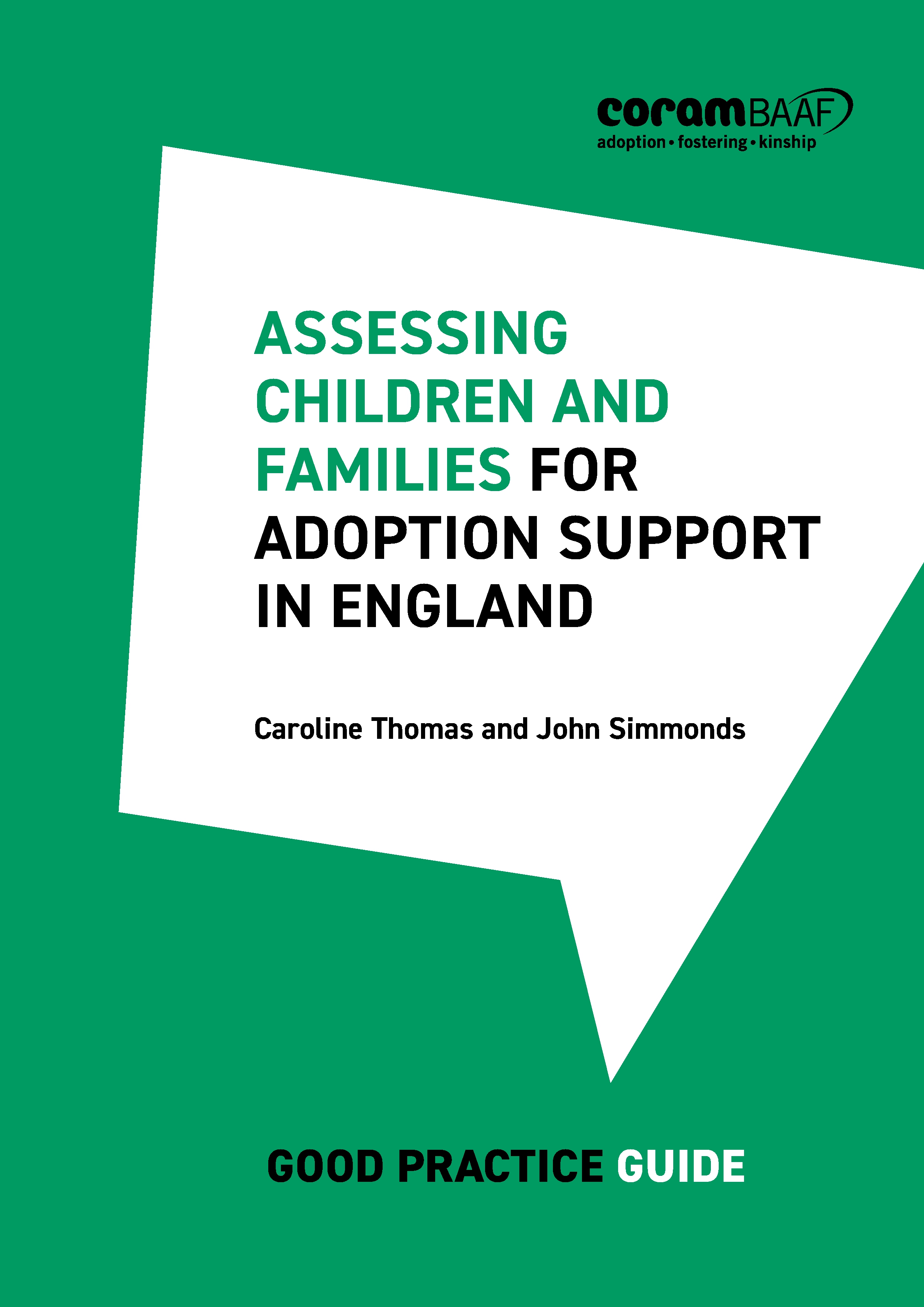
Assessing children and families for adoption support in England
The importance of adoption support is well established. Appropriate and timely support can make a hugely positive difference to the lives of adopted children who have been affected by loss, neglect or maltreatment in their early years. It can make a significant difference to the lives of their families too. But the effectiveness of adoption support is in part dependent on the quality of assessments.
Our latest Good Practice Guide will help social work practitioners to carry out post-order adoption support assessments that are informed by the best available evidence and practice wisdom. It aims to enhance the quality of these assessments, and thereby improve outcomes and well-being for adopted children and families.
Written by Caroline Thomas and John Simmonds, it brings together findings from research and evaluation of adopted children and families’ lived experiences, and expert practitioner and academic advice from disciplines including child psychiatry and psychology.
The guide includes:
- Understand adoption support: explore the underlying ideas behind assessing adoption support needs.
- Carrying out an assessment: learn the main stages to follow when assessing families for adoption support, informed by regulations.
- Key questions: understand the key information to collect and analyse during adoption support assessments.
- Enhance your learning: explore useful models from other children and family services; recent practice innovations; structured screening tools; and therapeutic interventions.
- Support for assessors: learn the importance of supporting assessors, including in handling challenges and encouraging reflective practice.
This practice guide is also a response to an increasing desire within the sector to “reimagine” assessments in the context of the ASGSF. It explores and promotes the view that assessments should be thought of as the start of therapeutic family interventions, as they were in the past, rather than simply a means to ensuring future ASGSF access.
It is a valuable resource for social workers and managers in England who assess the post-order support needs of adopted children and families. It will also be of interest to professionals in education and children’s mental health services, who contribute to these assessments.
Assessing children and families for adoption support in England is available to all in the CoramBAAF eBookstore.
